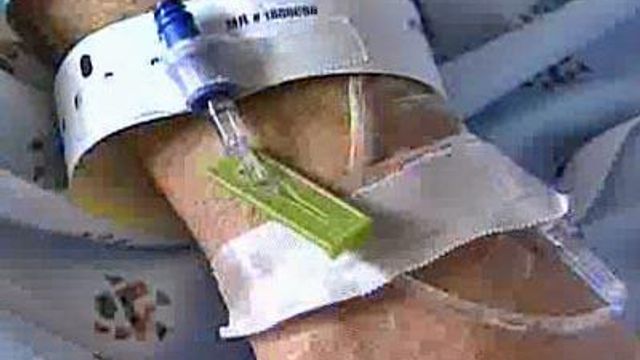WakeMed Staffed 24/7 for Heart Attacks
Round-the-clock staffing by cardiologists has sped up care for heart-attack patients and increased their chances of survival.
Posted — UpdatedHospitals, though, commonly put doctors on call on nights and weekends, so treatment might be delayed while physicians rush in.
WakeMed Raleigh has been fully staffed with cardiologists – 24 hours, 7 days a week – since January. They can more quickly clear heart-attack patients' arteries. Once the blockage is gone, the initial threat of a heart attack is over.
"The outcomes in terms of patient survival and patient functioning after the heart attack [are] going to be even better," Dr. Lee Jobe, a cardiologist at WakeMed, said.
Only three other hospitals in the state – including Duke Medical Center in Durham and UNC Hospitals in Chapel Hill – have round-the-clock staffing by cardiologists.
Seventy-year-old Leslie Strickland, of Goldsboro, found himself stricken with a heart attack one Saturday. "All across my chest was hurt, and the pain graduated down into my arms and then up into my neck," he said.
Doctors at Wayne Memorial Hospital stabilized Strickland and got him airlifted to WakeMed for surgery to open his blocked heart arteries. He arrived at WakeMed within an hour.
Since WakeMed started round-the-clock staffing in the catheterization lab, doctors have cut down the time it takes for heart-attack patients to receive an electrocardiogram (EKG) and get into the lab for surgery.
The goal is to give suspected heart-attack patients an EKG within 5 to 10 minutes after they arrive in the emergency room. WakeMed cardiologists can bring patients to the cath lab within 50 minutes or less – under the American College of Cardiology's recommendation of 90 minutes.
Strickland said he saw that quick care in action: From his arrival to his surgery, only 22 minutes passed.
"They were ready to go when I got here. They worked on me immediately," he said. "They saved my life."
Strickland also underwent triple bypass surgery and was ready to go home within four days.
Doctors stress that how long it takes patients to call 911 also affects their chances of survival and recovery.
Know the symptoms of heart attacks: chest discomfort lasting for more than a few minutes, shortness of breath, nausea, sweating and pain or pressure in the neck, arm or jaw. Women might not experience chest pain but are more likely to feel pain in their neck or jaw.
Take an aspirin immediately. Wait for an ambulance; don't drive yourself or have someone else drive you. Emergency medical workers can evaluate you and call the hospital before your arrival.
• Credits
Copyright 2024 by Capitol Broadcasting Company. All rights reserved. This material may not be published, broadcast, rewritten or redistributed.





